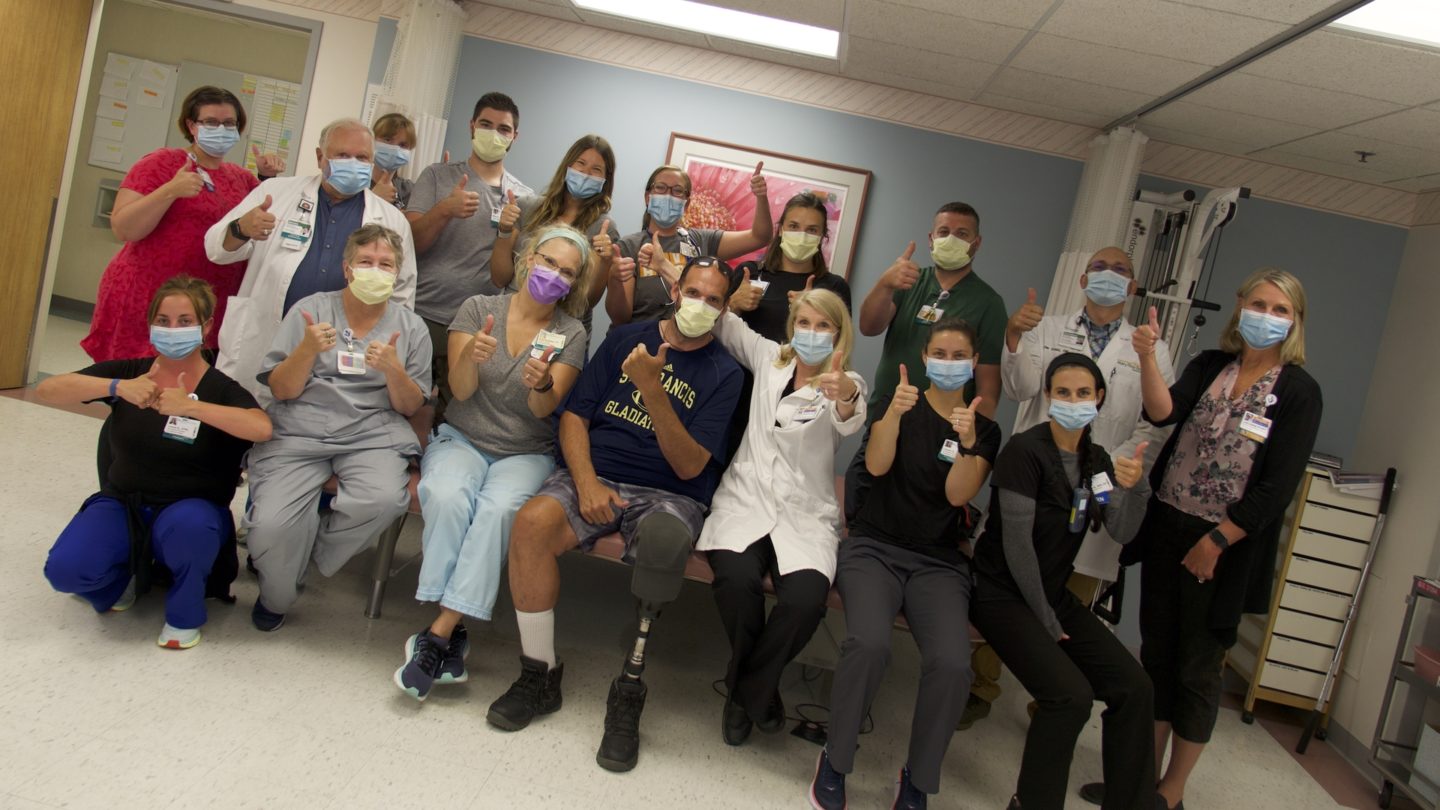
Board-certified rehabilitation physicians, hand-selected for you and your condition(s).
Things that were once second-nature can suddenly seem impossible when you or a loved one has experienced a stroke.
When you choose the Mary Free Bed Stroke Rehabilitation Program, you and your family will access a knowledgeable network of support to help you get back to your life. And a team of doctors, nurses, therapists, care managers and other specialists will work with you and your family to overcome the challenges unique to a stroke.
We’re a rehabilitation leader and have a rich history in the West Michigan community, serving patients for more than 125 years. Though we’re steeped in tradition, we stay on the cutting edge of rehabilitative technology and techniques.
Last year, our teams across Michigan cared for nearly 600 stroke survivors. At Mary Free Bed’s Grand Rapids campus, patients surpassed national averages for returning home or to a home-like setting and gained more functional improvement. Patient satisfaction was in the 94th percentile.
At Mary Free Bed, your return to independence will be supported by bright, caring rehabilitation providers. When you become a patient at Mary Free Bed, you become a member of our family.
We’ll be here for as long as you need us. After you graduate from our inpatient program, we offer outpatient medical care and therapy, a peer support group and a host of other resources.
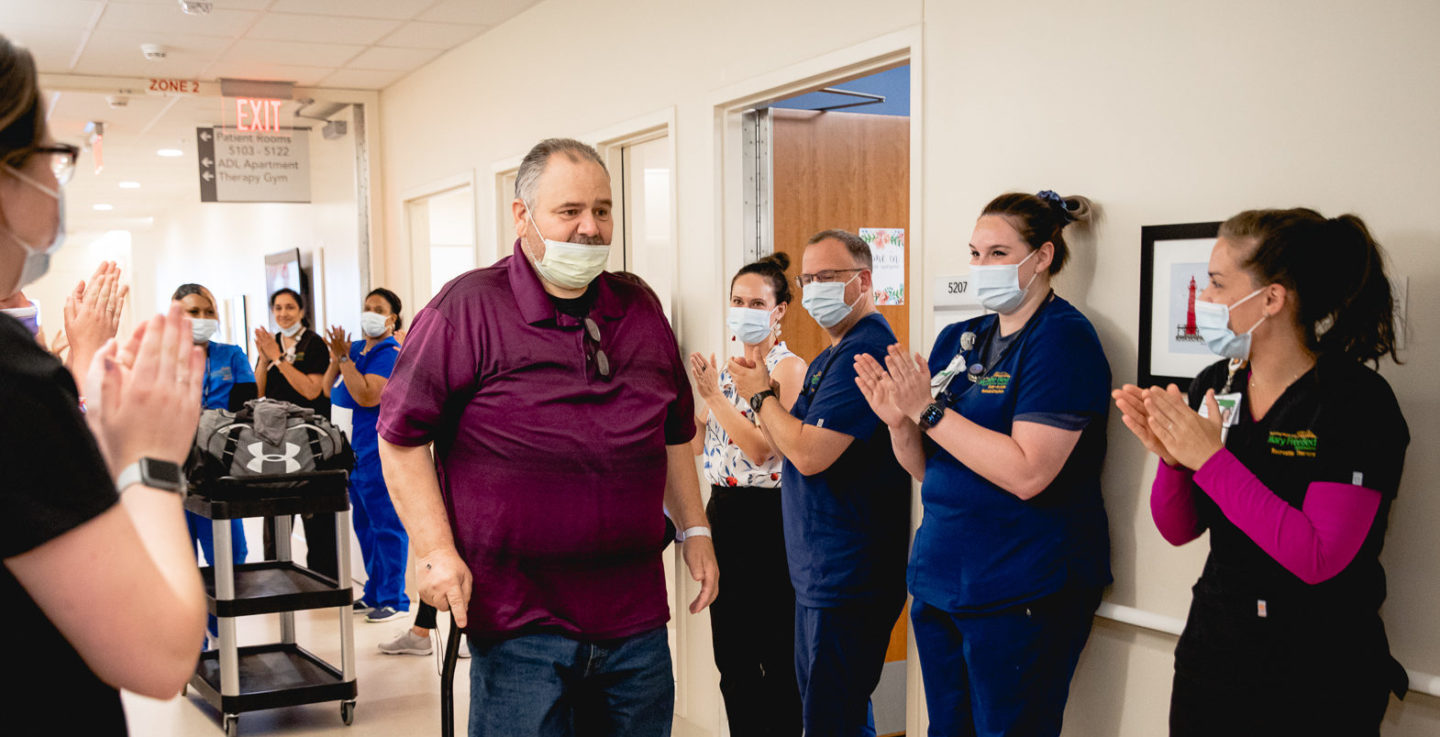
Our inpatient program is accredited by the Commission on Accreditation of Rehabilitation Facilities International (CARF). This rigorous accreditation process is based on specific standards, ensuring the highest-quality rehabilitation for people who’ve experienced a stroke.
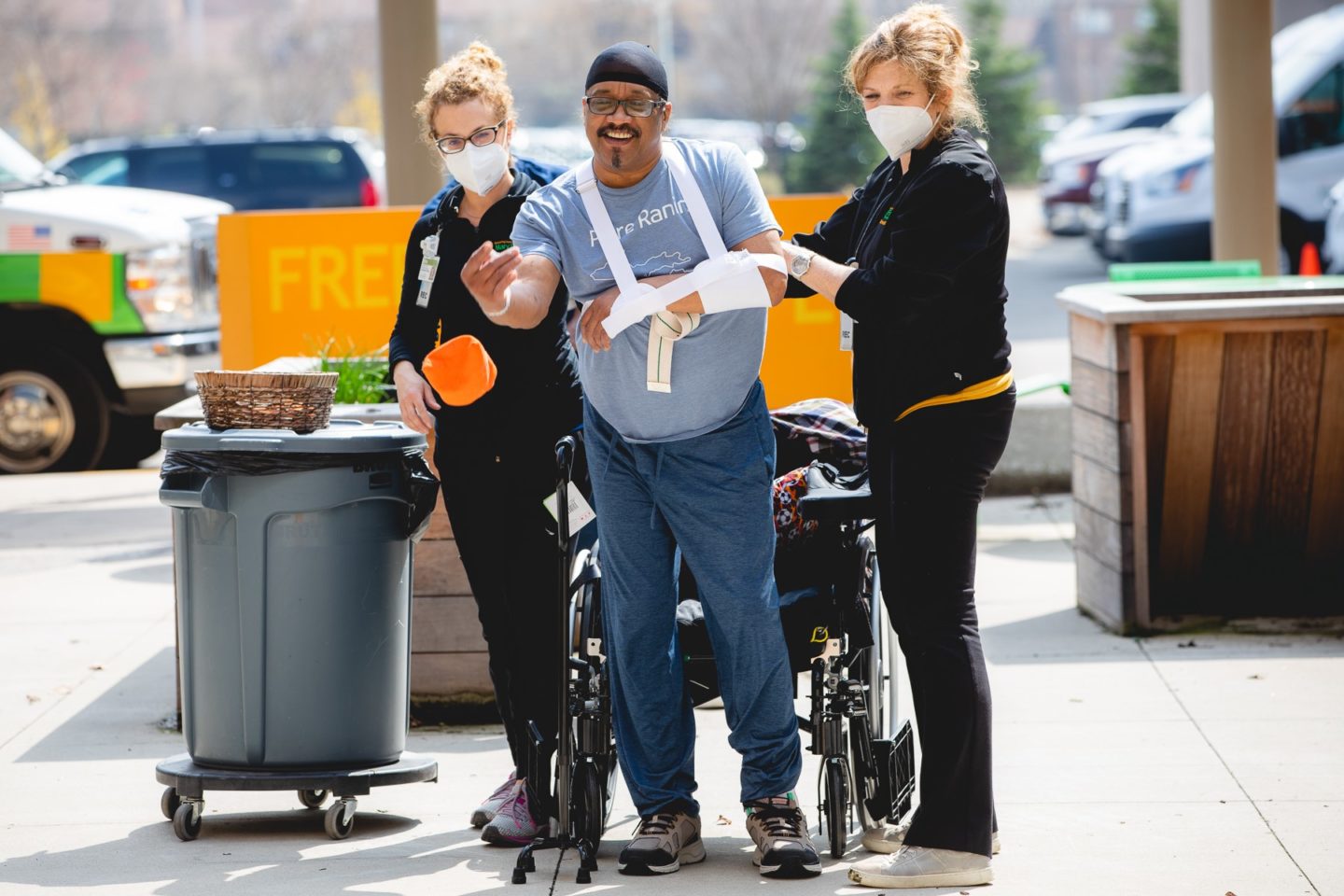
Our goal is to help you regain as much independence as possible. Our holistic approach means we go beyond physical healing to address your emotional and psychological needs. We’ll teach you practical ways to perform daily activities, like learning to drive again and reintegrating into the community.
Each day, you’ll participate in about three hours of therapy, often in dedicated gyms located close to your private room. Your therapy includes strength training, work on fine motor skills and learning new ways to accomplish daily living skills, such as dressing or getting into and out of your vehicle.
If you’re able, you can practice standing and walking with the aid of our extensive ceiling-mounted technology.
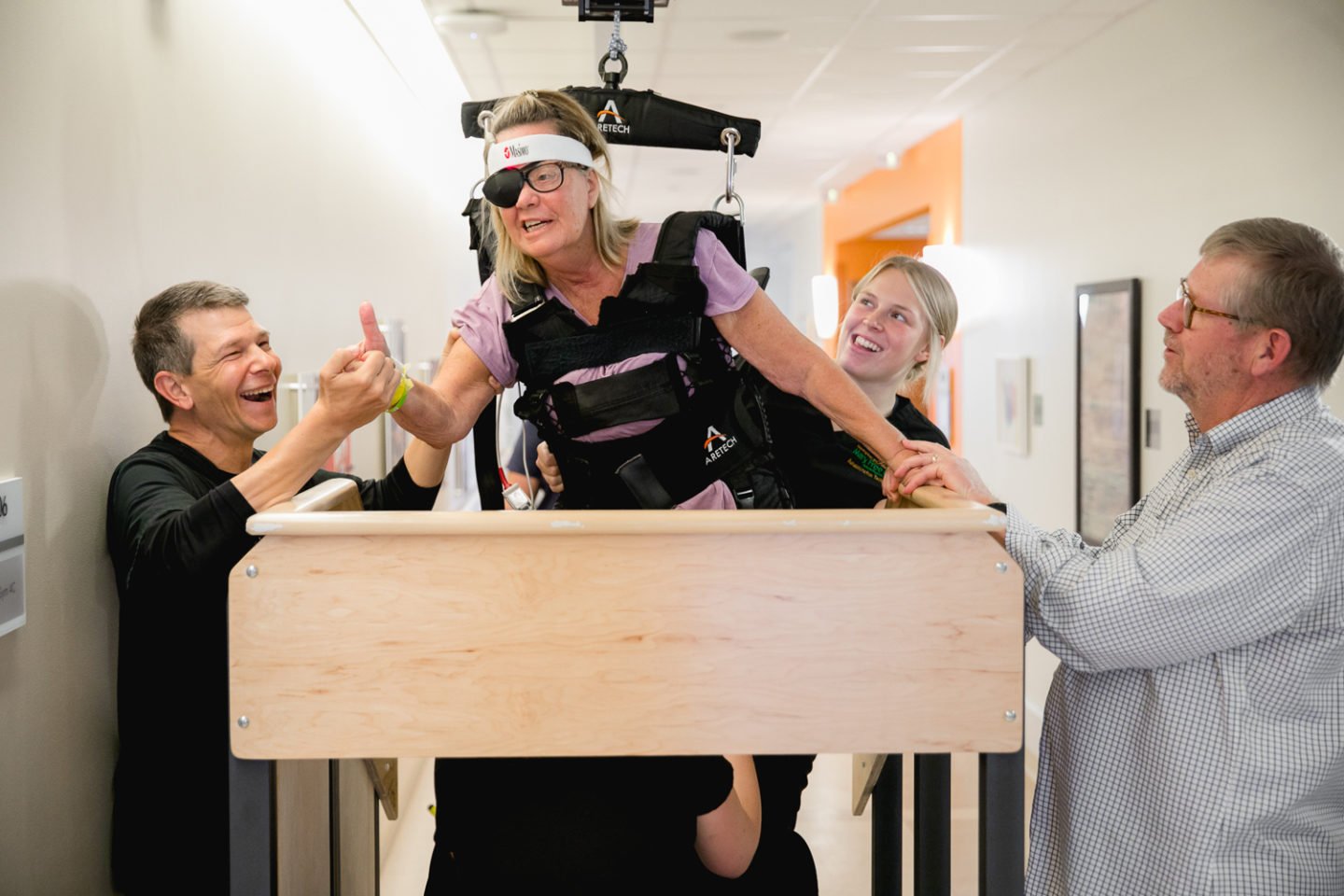
You may use some of our technology tools and techniques to help you regain function and mobility, such as:
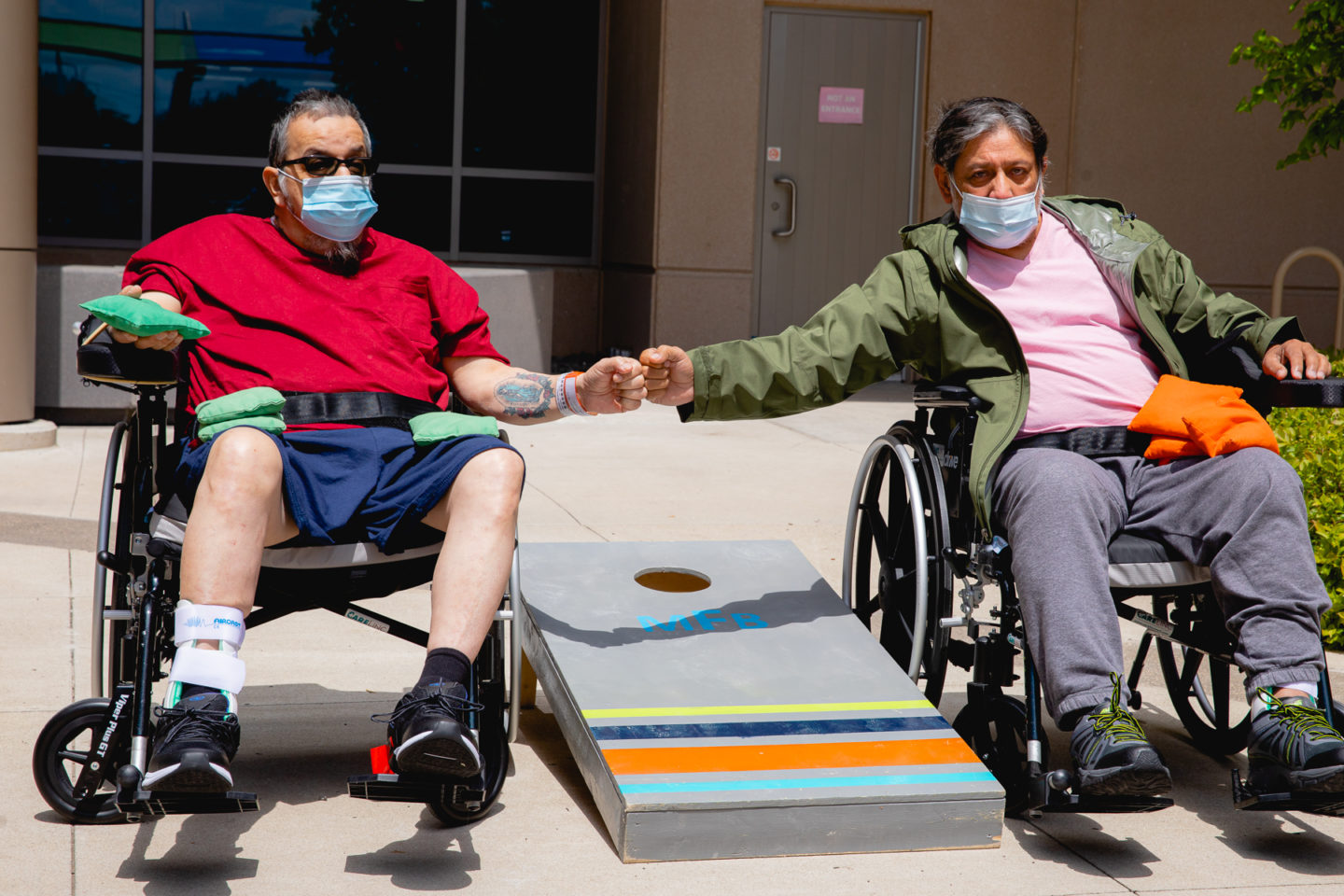
We provide education for family and friends and encourage them to participate in your therapy so they can feel comfortable about your future and participate meaningfully in your recovery. And our monthly Stroke Support Group provides opportunities to talk things out with people who truly understand your situation.
Board-certified rehabilitation physicians, hand-selected for you and your condition(s).
Registered nurses with rehabilitation and wound care certification, as well as nurse technicians.
Occupational therapists to help you resume independence with daily activities, such as brushing your teeth, getting dressed, doing laundry and grocery shopping.
Physical therapists to evaluate your strength, mobility and level of independence, then provide rehabilitation.
Psychologists focus on your emotional well-being, which is just as important as your physical condition.
Registered dietitians to evaluate your nutritional needs and monitor your food intake.
Speech-language pathologists to help you, if necessary, with eating, swallowing, speaking, breathing and so on.
Recreational therapists to help you get back to doing things you enjoy or introduce you to new leisure activities.
A care manager who partners with you and your caregivers to help you adjust to your injury and prepare to return home.
Even after your condition has stabilized and you’ve graduated from inpatient care, you can benefit from ongoing therapy. Mary Free Bed’s Outpatient Stroke Clinic addresses your physical rehabilitation, and we also consider your emotional, mental and social needs. Education and family support are vital to what we do, and we work together to ensure your treatment plan truly fits your health and lifestyle.
Rehabilitation physicians who specialize in treating patients with stroke collaborate with nurses, therapists and other professionals to give you holistic care when you need it. This will help you recover faster and better.
Our Stroke Support Group provides an educational and fun forum for stroke survivors and family members to meet and learn about adjusting to the lifestyle changes associated with a stroke. Our patients tell us these monthly meetings are an important part of the rehabilitation process.
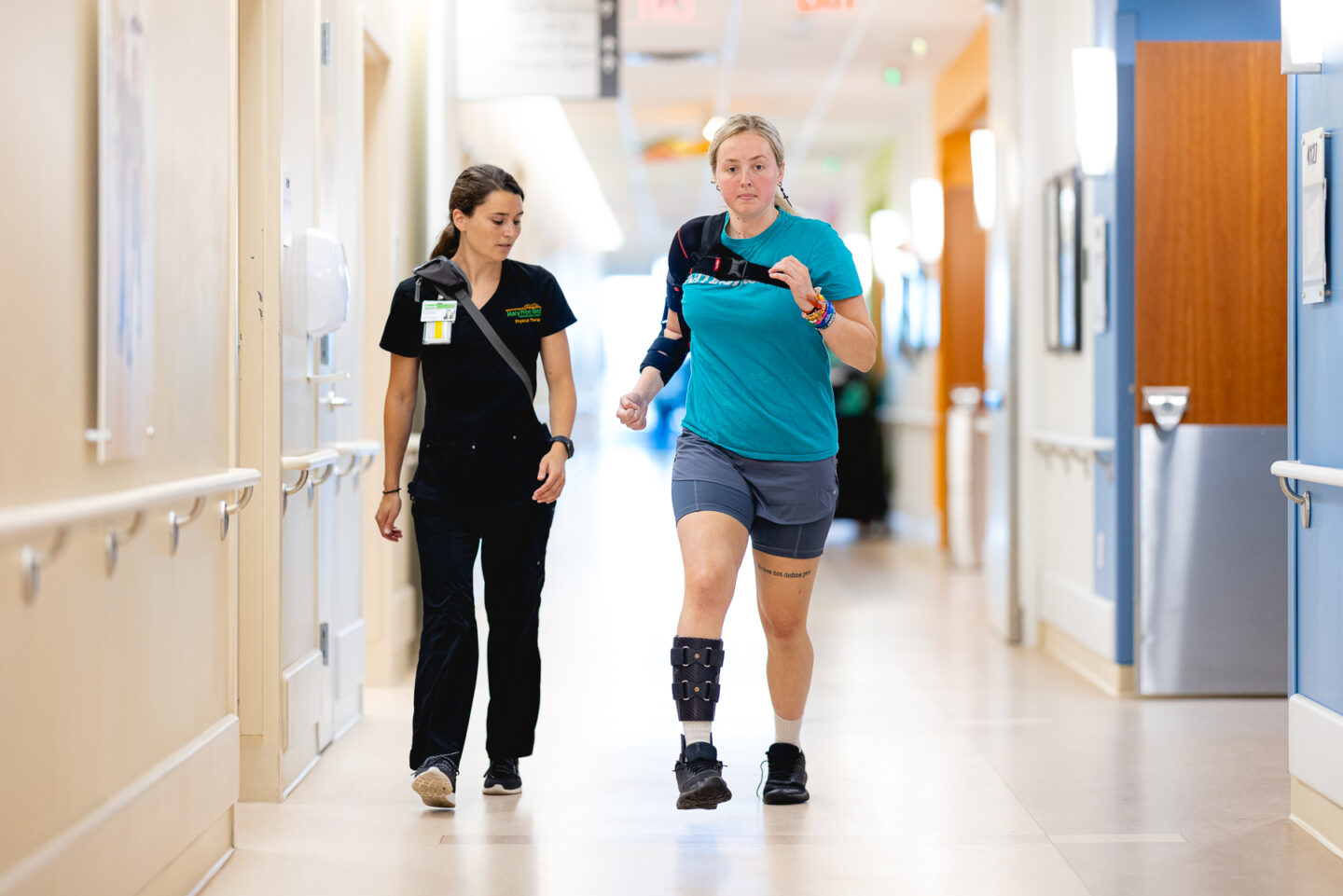
Our specialty services are designed to enhance and enrich your life. Your treatment team will work with you to coordinate the services and programs that will best serve you. Here are just some of the services we offer:
Below are questions we often hear from patients and their families. Talk with your treatment team about specific questions or concerns.
You’re likely to have the most healing progress in the first three to six months after your stroke. Healing should continue throughout the first year, but it can be somewhat unpredictable. You may see a lot of improvement one week, only to go a month or more without feeling like you’re making much progress. The process may slow around the one-year mark, though healing can continue for many years. Your stroke team will talk to you about your goals, expectations and potential outcomes so you’re well prepared for what lies ahead.
Your stroke rehabilitation team will develop a therapy program that takes into consideration your strengths, current mobility, obstacles and all the other factors that impact your ability to participate in a certain activity. Relearning to walk after a stroke can be scary at first. Our ceiling-mounted ambulation systems (ZeroG and Tollos) make it virtually impossible to fall as you progress through walking therapy. The LokomatPro’s robot-assisted technology allows you to remember the pattern of walking while supported by a harness and using a special treadmill with robotic “legs.” Instead of worrying about losing your balance, you can focus more intently on your therapy. This helps you to get the most out of your time at Mary Free Bed.
The length of your stay will depend on the severity of your stroke, your current level of function, your rate of improvement and many other factors. Your stroke team can provide you with a personalized timeline based on what’s best for you. After you graduate, you’ll have access to our outpatient therapy and services for lifelong follow-up, health promotion, therapy and support.
The emotional effects of your stroke depend on the location of the stroke as well as your personality. You may experience depression, mood swings, anger, crying and self-esteem issues, among others. You’re not alone: These are common effects of a stroke. Our rehabilitation psychologist can help if you experience emotional distress or depression. In some cases, medication may be appropriate.
You may experience various aches and pains on either side of your body after a stroke. Several factors affect pain levels, including the location of the stroke, sore muscles, pinched nerves or tendons and something known as “shoulder-hand syndrome.” Talk to your doctors and nurses about any pain or discomfort you feel. Your comfort is crucial to us, and we’ll work with you to manage your pain.
Your muscles are weak after a stroke. Muscles tend to work together in certain groups, or cliques, called synergy patterns. This is why your whole leg may move when you’re only trying to move your ankle. Talk to your doctor or therapist if you’re experiencing this synergistic movement. You’ll want to be careful not to reinforce this type of movement as it can become the only type of movement available. The muscles in your arm and leg will have a harder time relaxing after stroke because the whole nervous system is irritated. This in turn increases the tension in your muscles even when they’re resting. Your therapist can show you or your caregiver how to safely stretch your muscles so they won’t get tight. This can help prevent other physical problems.
We treat patients of all ages. This includes young and middle-aged adults. Mary Free Bed Kids offers highly specialized acute inpatient rehabilitation if your child or teen has experienced a stroke. Public perception is that stroke is a danger just for older adults, but nearly one third of stroke survivors are 20 to 64 years old. Strokes also have become more common among young children. Our adult inpatient and outpatient treatment programs are designed to get you back to daily activities – like driving and working – as quickly as possible.
Still have questions? Feel free to contact us.